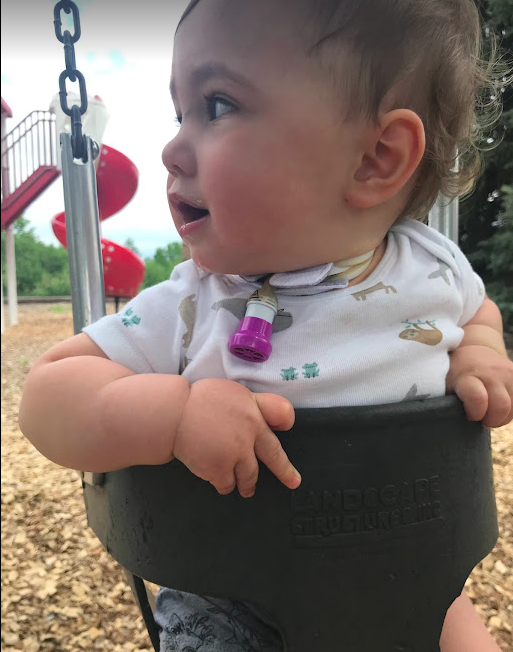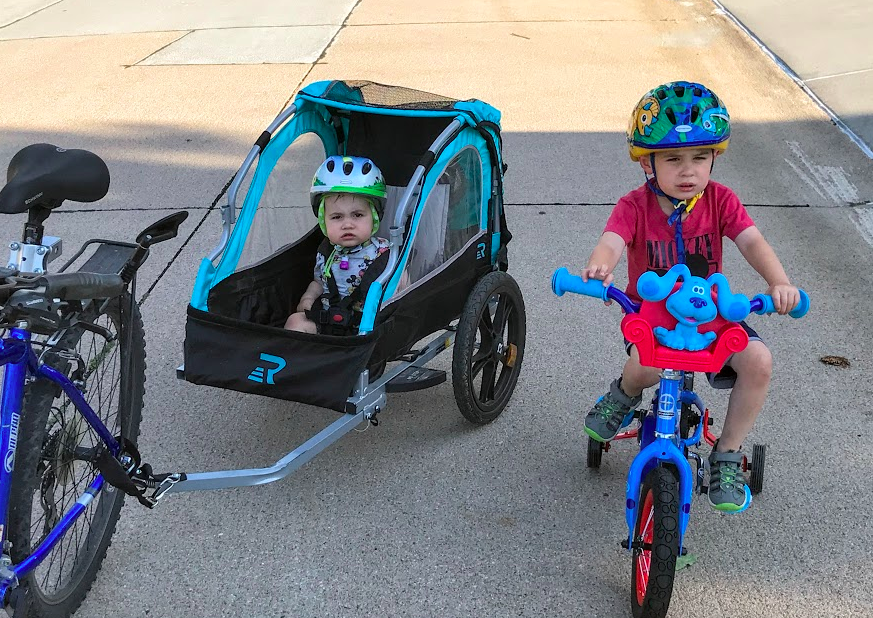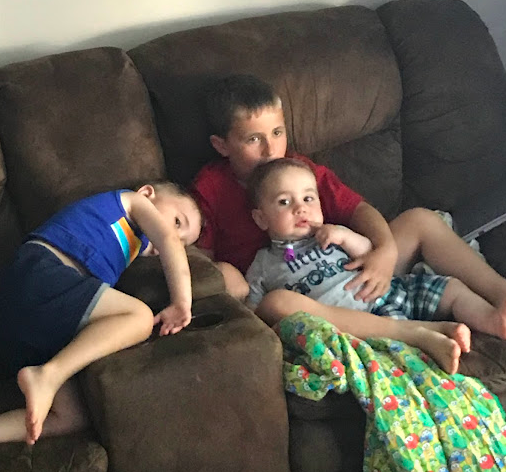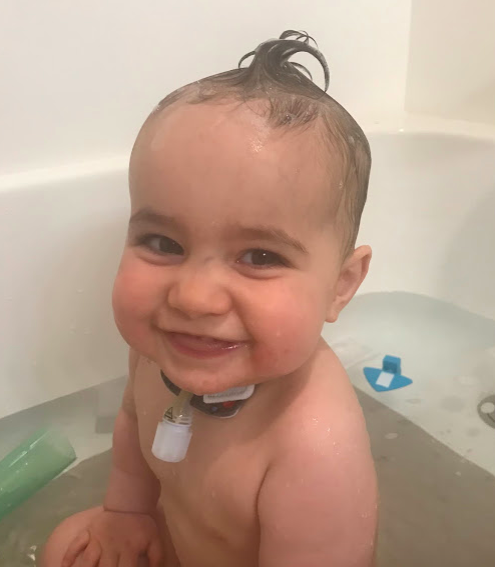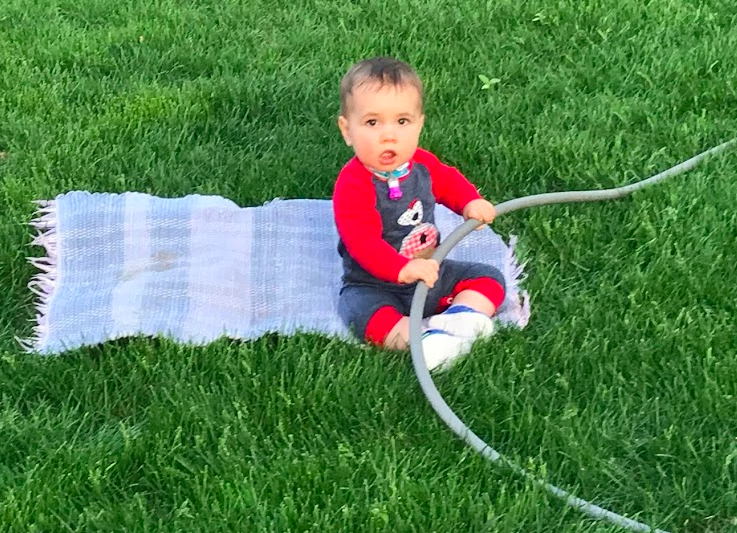Journal entry by Neil Risinger —
One year ago today, Daniel’s PHOX2B results confirmed that Daniel has CCHS. We have had numerous questions over the last year about what CCHS is and how this diagnosis will affect our family. This post covers these questions.
What is CCHS?- Congenital Central Hypoventilation Syndrome (CCHS) is a genetic condition. It affects Daniel’s ability to regulate his breathing. He has a genetic repetition of 25. His body doesn’t regulate his breathing correctly when he sleeps. Whenever Daniel is asleep he has to be hooked up to his ventilator. No exceptions. One night or one nap without his ventilator could kill him. Sophie and I have to remain hyper vigilant to ensure that whenever he is asleep he is hooked up to his ventilator.
How common is CCHS? - Between 1,500-2,000 people worldwide have been genetically confirmed to have CCHS. Currently Daniel is the only person in Nebraska with CCHS.
Will Daniel ever outgrow it? - No, CCHS is a genetic condition that Daniel will live with for the rest of his life. He cannot outgrow a genetic abnormality.
Why does Daniel have a Trach? -To regulate Daniel’s breathing, he needs a ventilator. While sleeping when Daniel stops breathing or takes too shallow of breaths, the ventilator pushes air into his lungs filling them and then he naturally exhales. The easiest way to help Daniel with his breathing is with a trach.
The trach is simply a straw that is inserted in his neck into his windpipe that he breathes through. When he is awake during the day, normally we have a purple Passy-Muir Valve (PMV- Daniel inhales through his trach exhales through his mouth or nose) or Daniel is capped (the trach end is closed so Daniel inhales through his mouth or nose and exhales through his mouth and nose). This way Daniel can push air past his vocal cords and make noises like any other toddler can.
Will Daniel always need a trach? -When Daniel is older we could decide to transition Daniel to a bipap or face mask for his ventilation. Both of these options have some benefits but also some drawbacks. As an infant and toddler our doctors have explained to us and recommended the trach for optimal ventilation while developing. We made the decision that a trach is the safest option for Daniel.
How else does CCHS affect Daniel other than his breathing at night? -His CCHS has no other effect on him physically or mentailly that we know of. Some individuals with CCHS have other medical issues. The most common issues are digestional regulation, body temperature regulation, eye sight issues, or issues with the heart. Currently Daniel is showing no signs of other body system issues. He just needs ventilation whenever he sleeps. He crawls, talks, eats like a normal baby. He is hitting milestones about the same time as his brothers. We take Daniel to the store, the children’s museum, church, school events, and he goes on bike rides just like his brother did at that age. When Daniel is awake, he is a normal toddler like any other 14 month old boy. Daniel will need three to four check ups a year in Omaha to see his specialist as long as things stay stable and there are no changes in his health.
How does Daniel’s medical condition affect your family?
-We have to be mindful of when Daniel might fall asleep. We have to ensure that we have his ventilator and other medical supplies easily accessible. This means carrying a 20lb ventilator with us, a large backpack of other medical supplies, and the small red emergency bag that has emergency supplies to change his trach. Daniel has shown himself stable enough that at times we leave the ventilator and/or backpack in the car when we go to church or into a store. Wherever we go we have to make sure that if Daniel needs his ventilator we can retrieve it and hook him up to it in less than five minutes.
-With Daniel’s medical condition and his trach he can only be left in the care of individuals who know how to operate his ventilator, hook him up to his ventilator and know how to properly care for his trach in case of an emergency. This means that Daniel has to be cared for at all times by someone who understands his trach and can provide the necessary medical attention required with his medical condition. Sophie and myself are currently the only family members fully trained to care for Daniel. He is also monitored at night by home-nurses through a nursing agency. No daycare in the state of Nebraska is equipped to handle Daniel’s medical needs, because of this Sophie left her job to care for Daniel.
-In the case of an emergency Daniel has special medical needs that many rural hospitals are not equipped for or have staff that are trained to handle a pediatric individual like Daniel with his medical needs. Because of this we have to be mindful of where we travel and know where a larger hospital is. Even living in Kearney; if something goes wrong or Daniel gets sick where he has to be hospitalized, most likely Daniel will be transferred to Children’s Omaha as there is not adequate staffing at the Kearney hospitals to care for his needs.
More information about CCHS is found here on the CCHS website:
-
Help Daniel Stay Connected to Family and Friends
A $25 donation to CaringBridge powers a site like Daniel's for two weeks. Will you make a gift to help ensure that this site stays online for them and for you?
Show Your Support
See the Ways to Help page to get even more involved.


